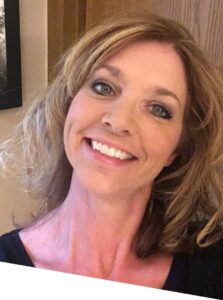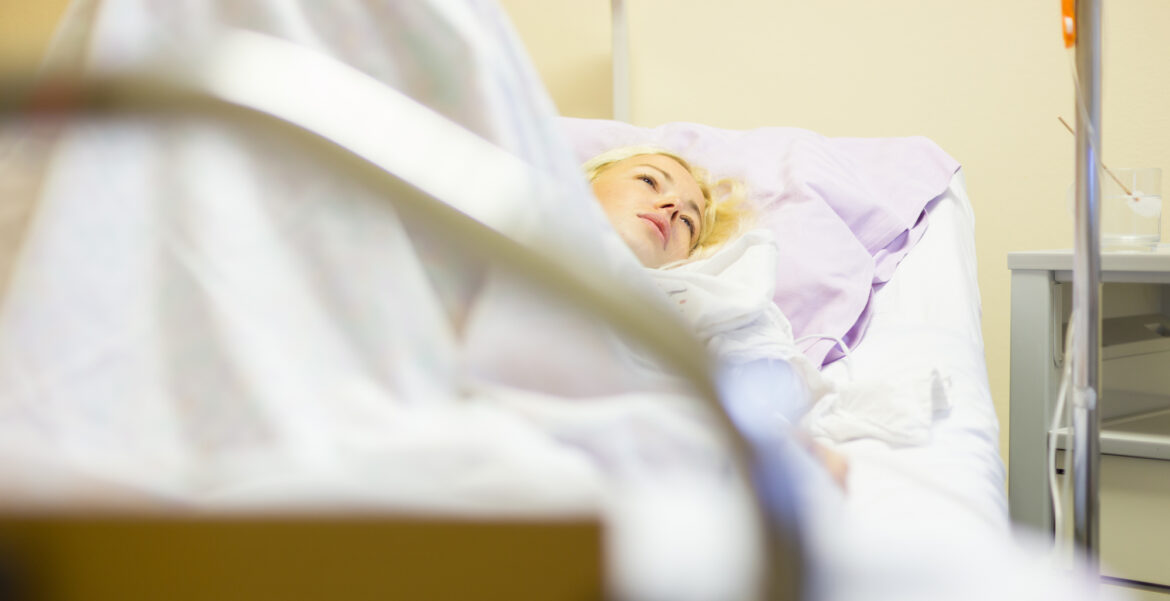An adoptee's compassion for her biological mother is deepened during a lonely and painful hospital experience.
By Michelle Hensley
I was scheduled for surgery on March 25, 2020, but because of the quarantine, the surgery was canceled. My condition declined and I politely and persistently encouraged my surgeon to appeal to the board. The appeal was successful. The surgery was rescheduled, and I had the operation on April 17.
It was a much different experience than I could ever have imagined.
I wasn’t afraid of the surgery. I’ve had several operations in my lifetime. But what I wasn’t prepared for was being alone—completely alone—immediately after my surgery and the entire night I spent in the hospital. The nurses and patient aides were attentive. If I needed something, I pushed the button, and they were able to help with pain meds or small amounts of food. But I was alone. Because of COVID-19, my husband was not allowed to be with me. He dropped me off at the door at 6 AM and I didn’t see him again until the next day when he came to drive me home.
I spent the entire night alone and in pain and had no one to comfort me. I imagine that my birth mother may have felt the same way the night she gave birth to me. I tried to get comfortable, but couldn’t. I tried to sit or lie in different positions, but it didn’t help. I was in pain and I cried. I barely slept. I felt nauseous at times and struggled to drink even the smallest amounts of water. My heart ached for my loved ones. When the nurse did come in, she was quick and efficient but didn’t stick around for small talk. She didn’t provide any kind of nurturing or offer encouraging words. I cried more and thought about calling someone, anyone, but I didn’t want to be a bother. Adoptees do that—we feel bad asking for help, as if we should be able to handle everything or because maybe we are not deserving of basic human compassion.
Back at home, my husband has taken great care of me. All I have to do is ask, and my wish is granted.
I didn’t go to the hospital to have a baby so—unlike my mother—I have no shame about why I was there or any guilt about my behavior. My heart does not ache for a baby I wasn’t able to take home and I am healing physically. I have a new understanding of what my birth mother experienced the night I was born. The baby scoop era was tragic, and the homes for unwed mothers were horrible places. They were supposed to be medical facilities where the patients would be cared for, when in fact they were places where girls and women were shamed and chastised for having become pregnant. These women were left in rooms alone during labor and after they gave birth. They were told they deserved to be treated that way.
On Mother’s Day, not long after my surgery, all I could think of was all the birth moms who suffered in silence. Many were told to never ever talk about it, and they went home as if it didn’t happen. They buried their pain. I’m so sorry that happened all those years ago. I’m sorry that it was the memories of a lonely night spent in pain in the hospital that allowed me to understand the depth of that loss.
Michelle Hensley was adopted as an infant and is in reunion with members of her birth families. She’s a mentor and facilitator at Encompass Adoptees, Transracial Journeys family camp, and Adoption Network Cleveland. Follow her at Facebook and find her on Twitter @Michell99944793.

Return to our home page to see more essays and articles about adoptees. And if you’re an NPE, adoptee, donor-conceived individual, helping professional or genetic genealogist, join Severance’s private facebook group.
BEFORE YOU GO…
- Please leave a comment below and share your thoughts.
- Let us know what you want to see in Severance. Send a message to bkjax@icloud.com
- Tell us your stories. See guidelines at https://severancemag.com/submission-guidelines/
- If you’re an NPE, adoptee, or donor conceived person; a sibling of someone in one of these groups; or a helping professional (for example, a therapist or genetic genealogist) you’re welcome to join our private Facebook group at https://www.facebook.com/groups/402792990448461
- And like us on Facebook at https://www.facebook.com/severancemag and follow us on Twitter and Instagram @Severancemag

